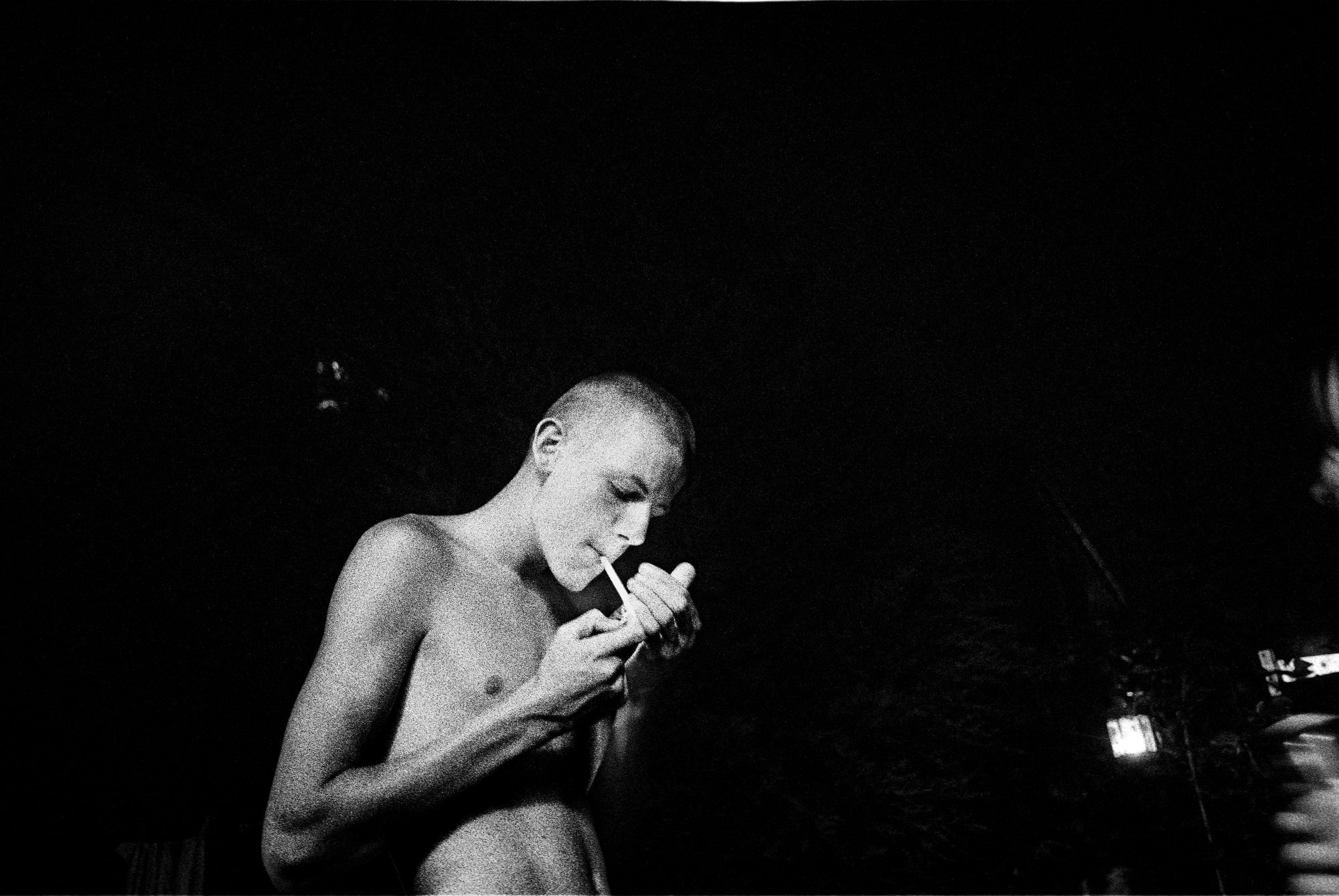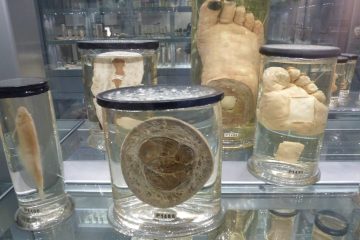

Photographer and film director CJ Clarke has spent years working as a photojournalist covering issues and stories far from home, whilst never failing to provide a focus back to his roots and, eventually, his hometown.
Situated 25 miles from central London, Basildon remains largely overlooked, a suburb characterised by housing estates, social clubs and pubs.
Half personal and half an investigation into what it means to be working-class and British, Magic Party Place captures the simultaneous realities happening around Basildon.
Using his camera as an excuse to spark conversations, CJ uses these random, intimate encounters in an attempt to create a sense of momentum in his book, a sense of rolling through town, experiencing many things at once.
ArrayCJ, tell us about Magic Party Place. How did the project come about?
When I began the project I was still a student, so it started as my final project when I was at London College of Communication doing an MA in Photojournalism & Documentary Photography back in 2005. I’d always been interested in Basildon – interested in it’s oddness and you’re aware of that; aware of its reputation as a kind of barometer for the mood of the nation, so these things were already in my head.
During the course you begin thinking you’re going to be a foreign correspondent, that romantic and nonsensical idea, and I did that – when I was still at LCC I went to Lebanon and covered the elections after the Syrian troops had pulled out, and the year after that I covered the Hezbollah-Israeli war – but retrospectively, I would say that I was not very interested in photojournalism in a straightforward sense.
To go to other places and say something about other people’s lives, you really should be able to say something about where you come from
Then it struck me that in order to go to other places and say something about other people’s lives you really should be able to say something about where you come from. Therefore, I knuckled down and started to create Magic Party Place as a way of exploring my own connection with Basildon.
In one sense, it’s a very personal story because it’s a story of the place I grew up, but it’s also an investigation into a state of mind, about what it means to be white, working-class and British. I always had the sense that the working-class was only photographed, only documented at their extremes. But what you have is the vast majority of ordinary life, daily life, which in its own way is quite extraordinary.
ArraySo that’s really what I wanted to look at: the ordinary and ignore cliche and ignore extremes. That’s why the book never has graphic scenes of drug-taking, for instance. It’s happening around where I am, but it’s not relevant to the story; it’s an easy hit. And photography gravitates too easily towards the easy hits.
How would you describe Basildon?
It’s a suburb of nowhere really. A place without a substantial identity, partly because of the design of new towns; the fact that new towns never really seem to grow old, so you have these series of stratified housing estates clustered around a central shopping area. It has a strange dynamic.
That’s really what I wanted to look at: the ordinary and ignore cliche and ignore extremes
Would you say the place has changed much over the time you’ve spent working on the project?
For most of the life of the project, it’s been remarkably homogenous, remarkably white. Everyone sort of came from the same place – Barking, East End of London, etc. – so that heritage is very pronounced and that creates a kind of monoculture.
That’s still there, but I suppose in the last few years what you’ve got is more ethnic minorities coming to the town and essentially repeating the journey that my grandparents made from Dagenham and Barking to Basildon. Here, there’s better housing and it’s obviously much greener than the East End, so in the last few years it has become much more visibly multicultural.
ArrayYou say your family feature in the book. Who are the other people and how did you meet them?
Obviously I had that personal connection with family, friends, friends of friends… then it was just walking around, a lot of hanging in the streets, talking to people, going into places. Once you have your mind set to do something, it gives you an excuse to go up to people and just randomly start talking to them, which is something people don’t generally do.
But most of the time, if you do start randomly chatting to people they are quite chatty as well. I got chatting to a mum who was out mowing her lawn and she was talking about youth and representations of youth. She told me I should come and meet her sons because they were often in trouble with the police and for various reasons had got a raw deal in the media and elsewhere. They were one of the main groups of people that I ended up hanging out with.
Once you have your mind set to do something, it gives you an excuse to go up to people and just randomly start talking to them
Were most people willing to speak to you and be part of the project? Did you have any challenging encounters?
No, not at all really because you’re not aggressive in your methods. You speak to the people beforehand. I’ve never really had any problems at all to be honest. I mean, most people imagine I’m doing something else, like if you’re in working men’s clubs, people tend to imagine that you’re doing a story about the decline of the working men’s club – it doesn’t matter how many times you say you’re not. That’s sort of how they get a handle on what you’re doing because the reality is saying you’re just hanging around to make pictures vaguely about England – it’s quite strange, so most people, understandably, don’t quite wrap their head around it!
Have they seen the book?
Yeah, actually I went round the house of a couple of lads who I’d hung around with… It was the first time I’d seen them in a number of years and I gave them the book, but they’d already printed off images of themselves that had been in Dazed & Confused. They were the smartest lot, even though they finished school with bad grades, they sort of understood the issues about representation and all of that, so it was quite funny really.
ArrayTalk us through your creative process – when you’re out shooting, how do you generally work?
I think it changed over the course of the project. Obviously in the earlier years you would shoot a lot and then, over the process of the ten years, it becomes much more laser-guided – much more of a precise process – because you’re starting to hone down on particular themes or situations.
You also start to look at things which you haven’t got. For example, there was one point in the project I realised that women weren’t very well represented in it, because being in a working-class community with quite a traditional social structure, you just tend to meet men all the time. So again, you notice these things and you try and work out strategies to re-address this and reconfigure where you need to go and into what situations you need to find a way into.
I want to create a sense of cinema, a sense of the dramatic, a hidden story that is being played out in front of you, abstracted by the absence of time
Lastly, how would you describe your photography style, and what are you drawn to in your work?
I took up photography because I wanted to be a film director, but I’m old enough to be pre-digital so I got sidetracked by photography for a bit, so my inspiration is taken from cinema. In my photos I want to create a sense of cinema, a sense of the dramatic, a hidden story that is being played out in front of you, abstracted by the absence of time.
Black and white allows for a greater depth of abstraction; you can concentrate much more on this sense of place, atmosphere and mood and play with narrative form in a greater way – especially in terms of what I was trying to achieve with this project, which was to create the sense that I’m moving through this place and just encountering these people.
ArrayThe book itself has an unclear narrative, so you could get to the end of the book or you could start it all over again. All these things are just happening simultaneously: the guys are hanging out on the estate at the same time as the old lady in the garden is hanging out her washing. The circle of time: all these simultaneous realities occurring; we all live within our own echo chambers, each with a complete sense of our own reality.
Magic Party Place is really concerned with the nature of time and how this plays out in a suburban working-class setting.




